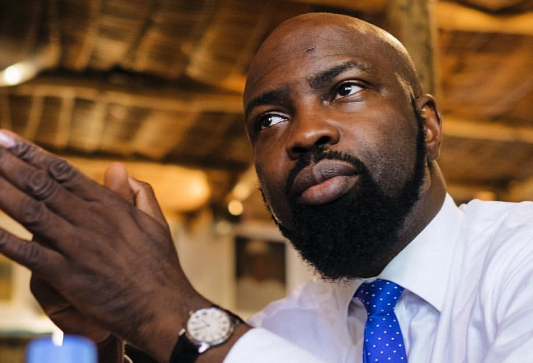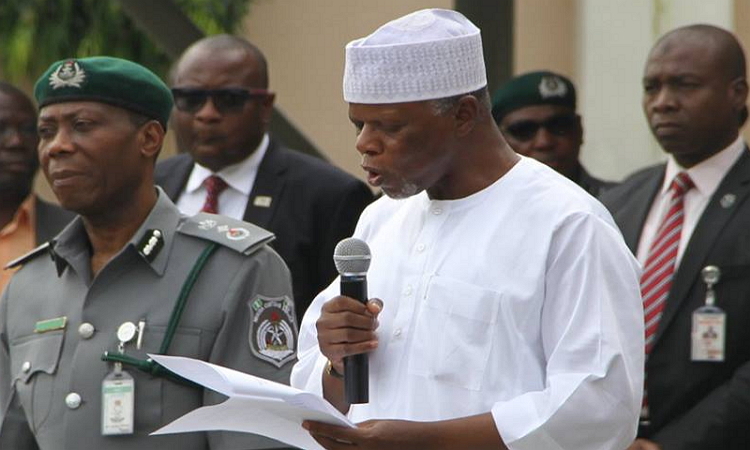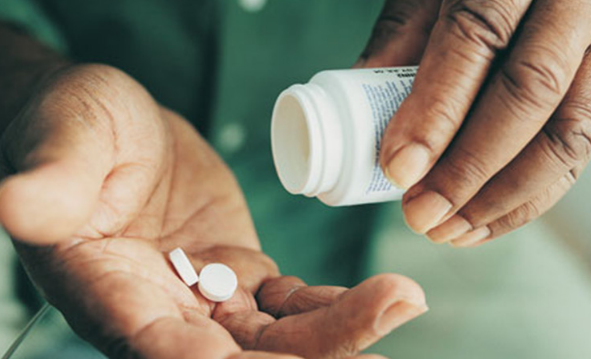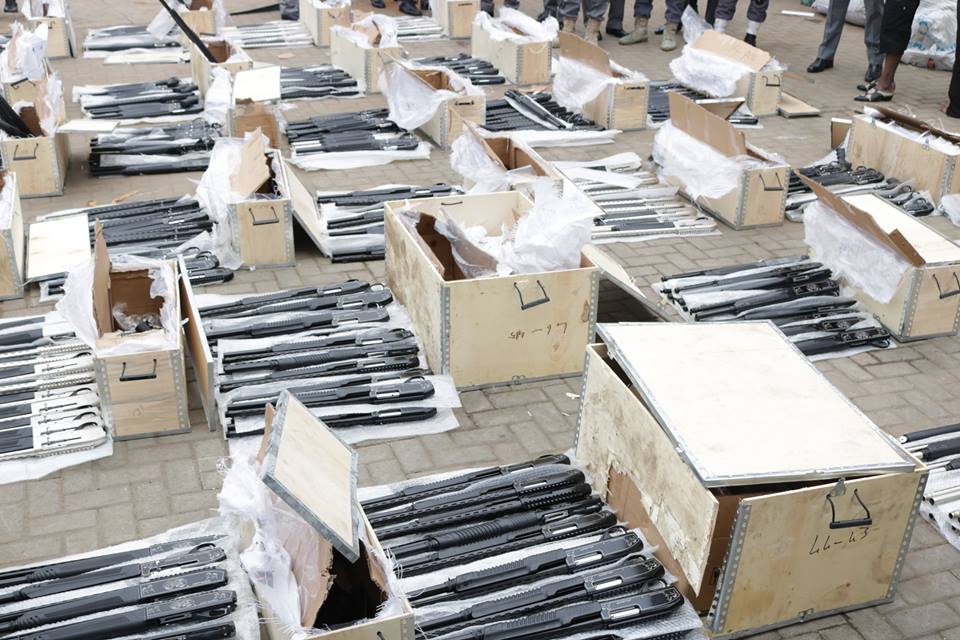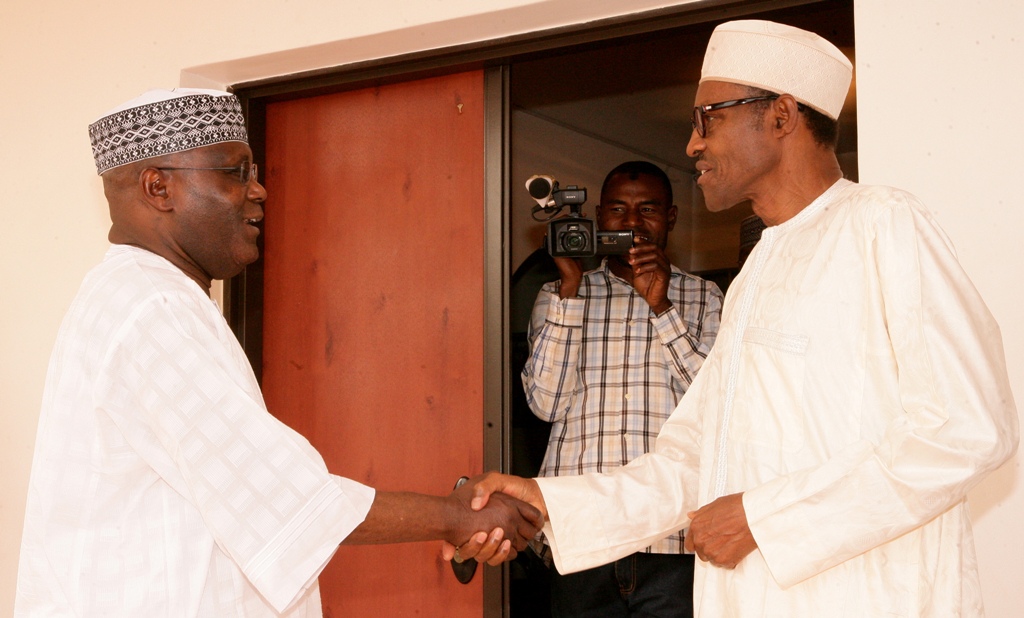A lot happened since President Muhammadu Buhari left Nigeria for the United Kingdom on January 19.
There is no doubt that the president, who returned to Nigeria after a 50-day vacation in the UK on Friday, has met the country a little more different than he left it. While he was in the UK, there were wildfire rumours that he had died. But Buhari was unperturbed; he made little personal efforts to shoot down the “fake news”.
Even when pictures of him in his UK haunt with leaders of the All Progressives Congress (APC), the senate president and the speaker of the house of representatives were released some Nigerians still did not believe that he was alive. However, that is all water under the bridge because the president is back, and he appears to be as fit as Muhammad Ali in his prime.
Here are seven things that happened in the country while he was away.
Advertisement
JAMES IBORI: RETURN OF THE DON
On February 04, James Ibori, former Delta state governor, returned to Nigeria after spending four and a half years in a UK prison for money laundering. This was 17 days after Buhari left the country.
The former governor had tried to keep his return to Nigeria under wraps, but word got out that he had arrived at Nnamdi Azikiwe International Airport, Abuja on the date. On his arrival, operatives of the Department of State Services (DSS) picked him up for a meeting with Lawal Daura, the secret police’s director-general. He later left for Oghara, his hometown, where a tumultuous crowd welcomed him.
MODU SHERIFF: COMEBACK KID
The Peoples Democratic Party (PDP) crisis continued while the president was out of the country. On February 17, the Port Harcourt division of the appeal court declared Ali Modu Sheriff as the authentic national chairman of the party. A three-man panel of justices delivered the judgment on the leadership tussle – between Sheriff and Ahmed Makarfi. While two ruled in favour of Sheriff, the remaining one supported Makarfi.
Advertisement
This judgment was one in a series of judgments on the impasse. Mohammed Liman, justice of the federal high court, Rivers state, had sacked Sheriff as chairman of the PDP, while the Abuja division of the court, presided over by Okon Abang had declared Ahmed Makarfi’s caretaker committee as illegal.
Owing to the conflicting judgments by the lower courts, both parties then went to the appeal court to seek redress. Makarfi challenged the decision of Abang at the Abuja division of the appeal court, but the court could not take a decision because Sheriff had already filed a suit challenging his removal by a high court in Rivers.
The PDP leadership crisis started in May 2016 at its national convention in Port Harcourt. Sheriff had called for a cancellation of the exercise when he got wind of the alleged plot of some party leaders to remove him. But the convention went on as planned, during which a caretaker committee chaired by Makarfi was set up.
Legal battles and intrigues between the factions then ensued.
Advertisement
JAMES NGILARI: JAIL BECKONS
The conviction of James Ngilari, former Adamawa state governor, by the state high court, is perhaps one of the pivotal moments of the Buhari administration in its fight against corruption. However, the president was not in the country when the Economic and Financial Crimes Commission (EFCC) secured the conviction of the former governor for contract fraud on Monday.
Ngilari, who was sentenced to five years in jail, is the third governor to be convicted of corruption after Lucky Igbinedion, former Edo state governor, and DSP Alamieyeseigha.
ANDREW YAKUBU: IN DOLLAR WE TRUST
On February 3, the EFCC raided a residence of Andrew Yakubu, former group managing director (GMD) of the Nigeria National Petroleum Corporation (NNPC), in Kaduna and recovered the sums of $9.8m and £74, 000 in a fire-proof safe.
This “recovery” was a news item for several days, but the president was not in the country to savour the breakthrough. But it is likely that he did while reclining in a sofa at Abuja House, London.
Advertisement
However, Yakubu has sued the EFCC, and he is demanding N1bn as a compensation for the violation of his fundamental rights.
ABUJA AIRPORT: NO FLY ZONE
The president’s aircraft landed at air force base, Kaduna, and not in Abuja as it often does. Yes, because the Abuja airport is closed for a reconstruction of its single runway. The airport was closed on Wednesday while the president was still in the UK. Though the closure was mooted when he was in the country.
Advertisement
Buhari left Kaduna for Abuja on a helicopter. He would have been driven to the state house if his plane had landed in Abuja. But no, he did a double trip. So, he is feeling the pain from the airport closure as well.
WALTER ONNOGHEN: IN THE NICK OF TIME
The swearing-in of Walter Onnoghen as the chief justice of Nigeria (CJN) is one event Buhari missed. The event was the climax of Onnoghen’s confirmation as the CJN by the senate. Vice-President Yemi Osinbajo, who did the bounden duty on Monday, also conferred on the CJN the second highest honour of Grand Commander of the Order of the Niger (GCON).
Advertisement
Before Onnoghen’s substantive role, he had been acting CJN since November 10, 2016, when his predecessor Mahmud Mohammed retired. A controversy had brewed over the president’s delay in sending his name to the senate for confirmation as CJN. And the controversy kindled when Buhari left the country before communicating with the upper legislative chamber on the matter.
But the tension was doused when news that the president had asked the senate to confirm him filtered in. Onnoghen’s tenure as acting CJN was due to end on February 10, but it was only two days before the time that the presidency communicated to the upper legislative chamber on his confirmation.
Advertisement
However, the senate could not consider the request then because it was on a three-week recess. The National Judicial Council (NJC), which had nominated Onnoghen for the position, then re-nominated him on February 9 – a day before the expiration of his three-month tenure.
Onnoghen, who is from Cross River state, is the only CJN from the south in 30 years.
GODWIN EMEFIELE: THE NAIRA ‘SAVIOUR’
Before the president went on vacation abroad a dollar was traded for about N460 at the parallel market, and it was even speculated that the naira would depreciate further. It later fell to N510/$1. But late February, the naira gained some leaps against the dollar. This was a few days after the national economic council chaired by Osinbajo, but inaugurated by Buhari, directed Godwin Emefiele, the Central Bank of Nigeria (CBN) governor, to review its forex policy. The CBN later explained that the current appreciation of the local currency was due to some “intelligent work” it did.
“What led to the appreciation of the naira was that the CBN did an intelligent work on the market and realised that what was driving the demand on the bureaux de change (BDCs) and parallel market was speculation,” Isaac Okorafor, CBN spokesman, said. “We reasoned that since there is a lot of pressure on the two segments from people seeking to buy foreign currencies for BTA, tuition and medicals, that if we successfully address that, the pressure will come down. Also, before now, the level of our reserves was not enough to make us comfortable enough to really do the kind of intervention that is required.”
The dollar is about N450 at the parallel market now, and it is not out of place to say that the president will be glad that the machinery he put in place before leaving the country has worked creditably well.
Add a comment


